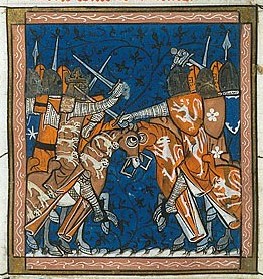Exploring the Significance of the Year 1271

The year 1271 A.D. marked a time of great historical significance, as it witnessed remarkable events and remarkable individuals shaping the course of history. This article aims to delve into some of the notable happenings that took place in 1271.
1. Marco Polo’s Journey to Asia
In 1271, Marco Polo, a young Venetian merchant, embarked on an epic journey that would make him one of history’s most famous travelers. Accompanied by his father Niccolò and uncle Maffeo Polo, Marco set off to explore distant lands such as Persia, China, and Southeast Asia. The intrepid trio spent over two decades traveling before eventually returning to Venice in 1295. Their adventures were later documented in the book “The Travels of Marco Polo,” which became a source of inspiration for future explorers like Christopher Columbus.
2. The Fall of Antioch
During the Ninth Crusade, the Mamluk Sultanate of Egypt, led by Sultan Baibars, seized control of Antioch on May 18, 1271. The Crusader forces faced a humiliating defeat and were unable to recapture the ancient city, which marked a turning point in Crusader-Mamluk relations. Antioch remained under Mamluk rule until it was captured by the Ottoman Empire in 1517.
3. Establishment of Inquisition in France
In response to the spread of heretical movements like Catharism and Waldensianism, Pope Clement IV issued a papal bull in 1267 establishing an Inquisition in France and instituted Dominican friars as Inquisitors. The process gained momentum following the death of Pope Clement IV in 1268 and continued throughout 1271 when several heretics were arrested and executed.
4. Accession of Kublai Khan as Supreme Khan
By 1271, the Mongol Empire was beginning to fragment, with various regions establishing their distinct rules. Kublai Khan, a grandson of Genghis Khan, emerged as one of the most powerful contenders for leadership of the Mongol Empire. In 1271, after consolidating power in the Eastern part of the empire and defeating his rivals, he formally declared himself the Supreme Khan, founding the Yuan Dynasty that ruled over China and neighboring territories for nearly a century.
5. Construction of Caerphilly Castle
Located in modern-day Wales, construction of Caerphilly Castle began in 1271 under the supervision of Gilbert de Clare, who sought to solidify his control over local Welsh rulers. At that time, it was one of the largest fortresses built in Britain and showcased architectural innovations such as concentric walls and innovative water defenses.
In conclusion, 1271 was a truly remarkable year that saw groundbreaking developments spanning from politics to exploration. These events continue to echo through history and have left an indelible mark on how we understand and appreciate our past today.






